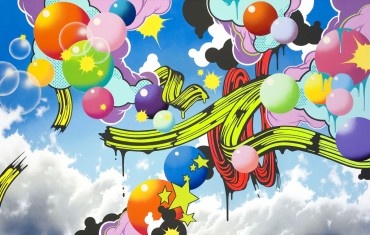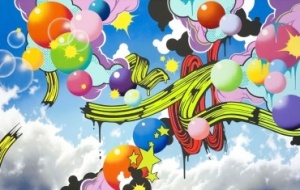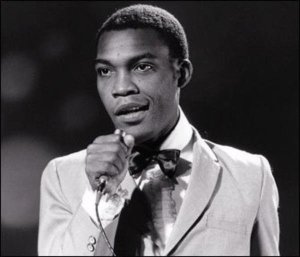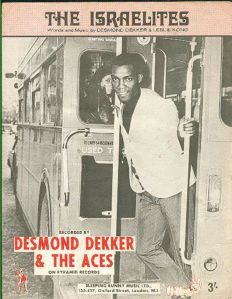
It’s Up To You – The Specials
What you gonna do, when morons come for you?
They won’t go away, they want the whole world painted grey…
The classic version of this song was recorded at The Moonlight Club in West Hampstead on May 2nd 1979, the eve of the United Kingdom General Election which was won by Margaret Thatcher and the Conservative Party. It opens with lead singer Terry Hall saying :
“I haven’t got much to say. It’s the eve of the election. It’s up to you”

That gig appeared on a bootleg which did the rounds. The Specials first album proper, produced by Elvis Costello on Two-Tone Records was released in October of that year a few months later. I remember it all so vividly. Life in England had felt like a fight for some time. In the spring of 1978 a march from Trafalgar Square to Victoria Park in Hackney was organised by Rock Against Racism, culminating in a concert where The Clash, Jimmy Pursey from Sham 69, reggae band Steel Pulse, Tom Robinson and X-Ray Spex among others played to a huge crowd of punks, skinheads, rastas and rude boys. It was in response to a rising tide of racist attacks and a poisonous atmosphere of hate which had been building for some time in the 70s. It was about taking sides. Black/White, Unite/Fight.

The Specials embodied that attitude – a gang of kids from Coventry led by songwriter Jerry Dammers, singer Terry Hall and toaster Neville Staple, guitarist Lynval Golding and bass player Horace Panter, graced by legendary Jamaican trombonist Rico Rodriguez on their first single A Message To You Rudy, a cover of the Dandy Livingstone ska classic. Indeed their sound was a punky update on classic Jamaican ska and two-tone rude boy music from the 1960s and that first album had a number of covers of Prince Buster, Toots & The Maytals, Lloyd Charmers and The Skatalites. The energy and politics were as one, and their live performances were a joyous combination of dancing and fury like most gigs in the late 70s, fuelled by lager and little blue pills. There was usually a frisson of violence too because skinheads would turn up and bounce around at the front looking for a fight. If it got too out of hand the band would stop playing and start lecturing them. With humour of course.

Margaret Thatcher and her mates, 1979
It was the start of four consecutive Conservative election victories and a massive swing to the right in Britain. Thatcher took on the unions, the Irish republicans, the Argentinians, the gas board, train services, water and electricity and appealed to naked nationalism and people’s innate selfishness. “There is no such thing as society” was her mantra, Reaganomics was her doctrine. Trickle-down. An arrogant, cruel sneering at the poor marked out the so-called national mood as people slept in doorways, lost their rights, signed on for work at lower pay. Compassion was deemed sentimental. Sentiment was deemed weakness. And strength was a lack of care as people fell by the wayside and through the safety nets built up by decades of the welfare state.

The Specials live in 1979
It always felt normal to me to be in opposition. It still does. Once again we are faced with a period of bare-faced nastiness, appealing to people’s basest primal fears, blind nationalism, pitting people against each other while the rich cream off the cream, hoping that we’re all looking the other way. History repeats the old conceits, the glib replies, the same defeats.

The Moonlight Club, 100 West End Lane NW6
I moved into 134 West End Lane, yards from The Moonlight Club in the summer of 1979 as I graduated from the London School of Economics with a 2:2 in Law, scarcely deserved, but a qualification to match my three splendid years in WC2 as a student punk. I had no intention of ever using the degree or continuing in the Law. I knew that I was going to be an actor – just not quite yet. I moved in with other graduates Pete and Sali and their friend Nick Partridge who’d just completed a degree at Keele University. Thus started a wonderful period of rolling joints, listening to reggae and post-punk picture-sleeve singles, dropping blues or amphetamine sulphate and painting and decorating to save money for a trip to Latin America with my brother Paul. We started learning Spanish at an evening class in Swiss Cottage. And we played frisbee and watched Brighton & Hove Albion finally playing in Division One, went to gigs at The Hammersmith Palais, the Music Machine in Camden (later called Camden Palace) the Rainbow in Finsbury Park and yes, The Moonlight Club down the street. I touched upon this fondly-recalled era in My Pop Life #92.

A band called Spizz Energi released a fabulously mental single called “Where’s Captain Kirk” and played the Moonlight one night, then changed their name the following month to Athletico Spizz 80. Pete would come home clutching singles by bands such as Wavis O’Shave, Shoes For Industry or Wah! Heat while I would enthuse about The Flying Lizards, The Undertones or the Gang Of Four and Nick would offer Ry Cooder’s Bop Til You Drop while Sali championed The Pretenders.

It’s hard to describe just how out-of-fashion ska music was until The Specials revived it. They spearheaded a movement which included Madness, The Selector and The Beat but it is a little like some kids today suddenly playing dancehall and it almost overnight becoming the most popular music on the radio. Such an inspiring moment.

Years later – in 2009 – I shot the lowest-budget film of my entire career, based on Barrie Keeffe‘s searingly brilliant play ‘Sus‘ which is set on the eve of the 1979 election and based on a true story he heard in the pub one night in South London. A black man is arrested after his wife is found dead and grilled by two policemen who are convinced that he has murdered her. As the election results trickle in the boys in blue look forward to a new dawn where they will be able to flex their muscles with much more sympathy from the powers that be. Just two years later in 1981, Brixton, Toxteth and other inner-city areas of the UK would erupt in flames as a furious reaction to this newly-confident police aggression.

Writer Barrie Keeffe (The Long Good Friday, Sus, Barbarians, Abide With Me)
Actor and buddy Clint Dyer – whom I’d met on the TV version of Lock, Stock in 1999 -had been doing the play Sus on stage and tried to talk me into playing the character of Karn the previous year at the Young Vic. I was honoured, but had to explain to Clint that I wasn’t keen on being onstage in anything. I just didn’t enjoy stage acting that much. Months later Clint had raised the money for a film version of the play with Barrie’s blessing, executive produced by Claire Castera and he’d recruited Rafe Spall as the other police officer when he came back to me with the offer to play Karn onscreen. What a part. A solid Thatcherite racist policeman, beautifully written by Keeffe, a man who spends the night grilling Leroy the innocent suspect with increasing violence and disdain. We had two weeks and a fifty thousand pound budget to make this happen, absurdly low. But where there is a will : a skeleton crew led by line producer Oliver Ledwith, and helmed by the wonderful Jono Smith as director of Photography and first AD’d by Tom White. Costumes by Linda Haysman, Make-up by Alison Hanken, 3rd AD was Keiron Mahon. All legends. Clint’s friend Rob Heath directed us on a set built at Elstree by Mark Sutherland, a single cell in a police station off the Old Kent Road. And Rob it was who chose this song – It’s Up To You (live at the Moonlight) to accompany the film’s opening credits, which I’ve linked to below, helped by archive footage courtesy of Don Letts. It is the most perfect distillation of music, time and place that I can think of. And the end result is a film that I am hugely proud of. Clint is quite devastating in the lead role. Rafe Spall is a marvellous twerp-like bully. It looks great. And I can actually watch myself – very rare indeed. Which makes it my favourite piece of work out of everything that I have done over the years. Funny how this particular character, so diametrically opposed to me , should fit me like a glove. There’s mystery !
And so now here we are, in early 2017, facing another period of opposition, another moment of decision, another call for solidarity. To be honest I’ve never felt that any government has represented me, or my politics. They’ve all been corrupt, all sold us down the river (still some quiver when I deliver). I am permanently in opposition, it kind of defines who I am. I am against stuff. Maybe I’ll mellow out as I get older. Doesn’t seem very likely somehow. But you never know. It’s up to me.
Eve of the election :
SUS – the opening credits
SUS – The Trailer







 A young Simon Curtis in 1985, one year after Deadlines
A young Simon Curtis in 1985, one year after Deadlines

 Camden Lock
Camden Lock







